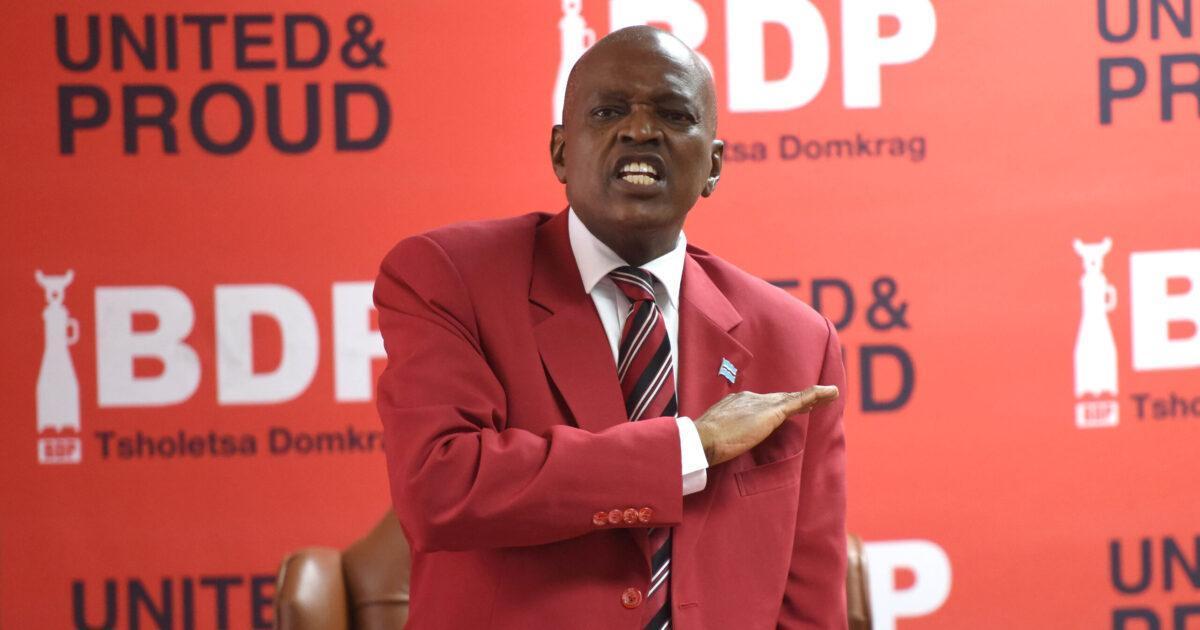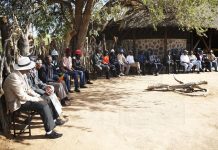Africa-Press – Botswana. The study also faults Khama for having made offensive Setswana language and cultural expressions remarks towards Masisi, but is more forgiving, citing his biracial background.
A recent scholarly article by the University of Botswana academics; Christian John Makgala, Boga Thura Manatsha and Batlang Seabo has shed new light on the Setswana language and cultural expressions used by two of Botswana’s former Presidents Ian Khama and his successor, Mokgweetsi Masisi.
The study, titled “Shooting from the Hip: Critical Discourse Analysis of Setswana Language Spoken by ‘Deculturalised’ Presidents Ian Khama and Mokgweetsi Masisi, Botswana,” uses Critical Discourse Analysis (CDA) to explore claims that both leaders exhibit signs of “deculturalisation”, a process where cultural orientation is lost or replaced, particularly in their use of Setswana and adherence to the nation’s cultural ethos known as botho (civility, respect, and humility).
Setswana language proficiency
The article traces deculturalisation to historical factors including colonial influence and globalisation, highlighting how Botswana’s political leadership is expected to uphold botho, which forms a core part of the country’s Vision 2016 national philosophy. The authors argue that while Khama’s English-speaking, biracial background may have initially distanced him from Setswana cultural norms, by the end of his presidency his Setswana was sufficiently fluent, though his language sometimes violated botho during his political feud with Masisi.
Conversely, the study disputes claims that Masisi’s Setswana skills were negatively impacted by elite English-medium schooling. Instead, it underscores his deep immersion in Setswana language and culture, noting that some of his public utterances, despite their cultural grounding, also contravened botho by containing abusive or inflammatory language. His public communication style is described as prone to overreaction and lacking in diplomatic tact, traits the authors suggest contributed to the Botswana Democratic Party’s historic defeat in the 2024 general elections after 58 years in power.
Historical context and political power
Using historical insights, the article connects the discourse styles of both leaders to their political power and ideological battles. Ian Khama, son of the revered Seretse Khama and product of a racially complex heritage, occasionally used Setswana in ways perceived as offensive, particularly when attacking Masisi. Masisi, meanwhile, wielded his political authority to publicly reprimand critics, sometimes damaging the dignity of the presidential office in the eyes of the public.
The verdict
“Masisi and Khama mainly relied on, or were mainly influenced by, their political power when uttering political statements deemed inappropriate,” reads the study.
Khama’s offensive utterances were primarily directed towards Masisi during their political feud. Generally, his other utterances analyzed in the article, especially when interacting with ordinary citizens, were not offensive. Such utterances attracted public attention mainly because of his deficiency in idiomatic Setswana, according to the authors. The controversy surrounding his Setswana, the authors note, is “not on what he says, but how he says it because of his perceived deculturalisation.”
On the other hand, criticism of Masisi focuses on his tendency to use abusive Setswana words and phrases against the ethos of botho, despite his deep familiarity with the cultural context. The article notes:
“He has frequently used abusive and inappropriate language on his political opponents, ordinary citizens, and even Botswana’s longest partner in diamond mining, De Beers.”
“Unlike Khama, who has a calm demeanour”, Masisi is described as having “a problem of temperament, and lacks public diplomacy.” This, according to the article, has led to unnecessary public outbursts. “While both have accused each other of reckless utterances that could tarnish the country’s international image, local critics have accused Masisi of undermining the integrity of his office and the country’s image,” notes the article.
Furthermore, the authors observe that: “His government was also compared unfavourably with that of Khama in terms of the unfulfilled 2019 election campaign promises.”
The authors argue that through Masisi, Botswana has witnessed “how a leader can use his (political) power to publicly humiliate those who differ with him instead of accepting that as a leader, one is bound to be criticised.” Khama similarly “reinforced and displayed his political power in his discourse against Masisi.”
For More News And Analysis About Botswana Follow Africa-Press






